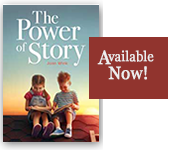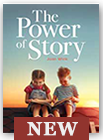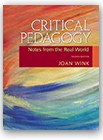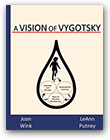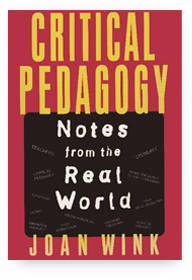What is pedagogy?
We come from a tradition which taught us that pedagogy was about a teacher, teaching. When I started teaching in 1966, I thought pedagogy was about ~me~ teaching. I believed that until the day I started teaching my first class in Great Valley High School near Philadelphia. It was then that my understandings about pedagogy began to change.
It seems that I didn’t learn everything in my preparation to be a teacher. You can imagine my surprise. Once I was actually in the classroom, students took it upon themselves to continue my education. Students taught me that teaching and learning go hand-in-hand.
I now believe pedagogy is the reciprocal, interactive, and dynamic process between teaching and learning. It’s is what goes on everyday in great classrooms. There is no one perfect pedagogy. Multiple paths exist on the path to good teaching and learning.
- What is critical pedagogy?
In critical pedagogy, ~critical~ does not mean criticize. Rather, it means that that we bring a perspective to our teaching and learning which calls upon us to see more clearly the social, cultural, and political hidden processes which are also a part of teaching and learning.
- Critical pedagogy calls on us to see the inequalities of schooling.
- Critical pedagogy calls upon us to reflect on our own roles within schools.
- Critical pedagogy calls us to take action for social justice within classrooms and communities.
- Who in the world was Lev Vygotsky?
Vygotsky and His Times
The work that Lev Vygotsky began decades ago in post-revolutionary Russia is still relevant and informative today. At least three reasons exist for the popularity of Vygotsky’s work among intellectual circles: (1) his emphasis on the active contribution of humans to the development of their own consciousness; (2) the importance of social interaction in development; (3) the notion of the mediational role of language in the communicative process. (Ernihovich & Souza Lima, 1995). Throughout the coming chapters we will be addressing these constructs that were central to Vygotsky’s work.
Historical Beginnings: A Brief Look at the Background of Vygotsky
Who was this Russian psychologist who continues to influence us decades after his death? Who is this educator from the past who tugs us into the future? The story of his life is a source of inspiration for educators. Looking at the historical context of his life helps us to understand why his work emphasizes the fundamental importance of context and culture on language and learning. His life provides a vivid picture of how one can be highly productive under the most difficult personal and societal conditions.
During his short life in pre- and post-revolutionary Russia, Vygotsky generated enthusiasm and excitement in his continuing search for deeper understanding of the processes of learning and development. From his own experiences in learning to his early career as a teacher and teacher educator, Vygotsky’s work touched and changed lives in his own sociocultural context as it does in ours today. His daughter, Gita, notes that those who learned from and with Vygotsky, years after his death still considered the thirty-seven-year-old researcher to be their teacher.
From his passion for learning during his short, difficult life, we learn and relearn valuable lessons. We discover and rediscover our own courage in the midst of challenging educational influences and societal changes. When we are discouraged with the social, cultural, or political context of our lives, we draw strength from his personal and professional life. In this chapter we will take you through a brief history of Vygotsky’s life that includes parts that were most compelling to us as we searched through the sources available (Blanck, 1990; Vygotsky, 1986; Yaroshevsky, 1989).
Vygotsky was born in 1896 in the town of Orsha, in Belorussia in northern Russia, to a middle-class Jewish family. Within the first year of his life, his family moved to Gomel where his father was a banking executive and his mother was a licensed teacher. During these pre- revolutionary years in Russia, Jewish families suffered from outside discrimination. in spite of this repressive environment, his parents surrounded their eight children with books, ideas, and conversation that would influence his work in psychology and pedagogy later in life. Learning, teaching, and collaboratively sharing were central to his sociocultural context at home. His family talked and listened to each other, creating an environment of sharing and collaboration. As the topics of conversations deepened, the language and the ideas of Vygotsky evolved.
Vygotsky’s education also was enhanced by his own private tutor, who dialogued with him by implementing the Socratic method of question and answer. His genius surfaced early in his life when he attended private preparatory school after completing the primary level with independent study. Even at this stage, he was interested in a wide range of academic pursuits. During these early secondary school years, his intellect was obvious to the professors who surrounded him. He excelled in math and in classical studies, but was keenly attracted to literature, theater, and poetry. In addition, he was fluent in many languages and was an avid speed-reader. Luria described the books that Vygotsky read as not exactly adventure novels (Blanck, 1990, p. 33).
As we reflect on the teenage years of his life, we marvel at the complexity of his ways of knowing and his “otherness.” Discrimination was a part of his life as a Jewish teenager. With the support of his family, he had the courage to follow his interest in learning as much as he could. His depth and breadth of knowledge at this point in his life were astounding, yet, according to his schoolmates (Vygodskaya, 1995), Vygotsky was not impressed with his knowledge and never acted superior. He willingly offered what he knew as assistance to others as a youngster and all his life. We imagine that Vygotsky must have believed, “What good is knowledge if you don’t share it with others?” An interesting reflection might be, “What would happen to this caliber of student in public schools today?” Would this type of intellectual ability be recognized and validated? Once again, we find that Vygotsky’s life speaks directly to us as educators in present-day society. Knowing about his life causes us to reflect on our own educational process.
When Vygotsky first prepared to enter the university, a quota system kept Jewish student enrollment to only 3 percent. This tiny percentage of students needed to have the best scores on tests, which would not have been a problem in his case. However, in attempting to hold down the level of intelligence represented by the Jewish community, government officials changed to a lottery system of admittance just as he was ready to enroll. On hearing this news, Lev was completely discouraged and was convinced that he would never get into a university. In an attempt to offer encouragement, his friend made a bet with Lev to try for the lottery anyway. When he was accepted, he gave his friend a book of poetry with the note: To Senya, in memory of a lost bet (Blanck, 1990, p. 34).
In college, Vygotsky wanted to follow his interest in the humanities. However, this area of study would lead to the field of teaching, which was denied to him because of his religion at that time. Instead, Vygotsky entered college as a medical student, but, later, decided to drop medical school in favor of law school. in order to satisfy his avid interest in the humanities, he enrolled in another university at the same time. We often think of the challenges that certainly must have faced Vygotsky as he simultaneously attended two universities. He studied philosophy and psychology while also focusing on literary criticism. Those who read Vygotsky’s publications in the field of literary criticism say that it was among his best work, although it has since been lost.
In 1917, Vygotsky graduated from both universities. It is significant to remember the social context of his time: the Russian Revolution of 1917, which caused daily hardship for him, his family, and the Jewish community. His graduation and that revolution are forever joined in our minds. His entire world was undergoing fundamental massive societal changes, just as ours is as we begin the twenty-first century. Vygotsky returned home to Gomel where his family suffered greatly from illness and his town was still occupied by German forces. Both his mother and youngest brother were suffering from tuberculosis, and Vygotsky cared for both of them.
In 1919, with Russian rule finally reinstated, the law now allowed him to become a teacher. He immediately began to teach literature, aesthetics, philosophy, and Russian language in a newly opened vocational school, along with psychology and logic in a local teachers college (Vygodskaya, 1995). At this time, Vygotsky began to suffer from the tuberculosis that would take his life prematurely. During post-revolutionary Russia, there was a tremendous amount of famine, hunger, lack of heat, and terrible suffering, and Vygotsky’s family was not immune to the suffering. However, this revolutionary time also produced great intellectual growth and development. Reflection on this time in history and Vygotsky’s accomplishments always gives us hope. Each of us has times when our world and our educational space may not be exactly as we would wish. However, we can see how truly great ideas emerged from the people in Russia in spite of their tremendous suffering.
Although his tuberculosis continued to take its toll on his health, Vygotsky was highly productive in research and theory building. He was actively involved with a wide circle of scholars, and his ideas grew from their shared dialogues. His background as a literary critic served him in his work as a teacher of literature and history of the arts. He also organized lectures and literary discussions with the local townspeople, and participated in a publishing company with one of his cousins and a friend. Although the publishing company went out of business for lack of paper, Lev Vygotsky continued his varied activities and became “the central figure in Gomel’s cultural life” (Yaroshevsky, 1989, p. 58).
Along with these activities, he continued his study and involvement with psychology, and began a search for a new psychology in order to understand the role of consciousness in child development. Because of his concern and interest in teaching and learning, he organized a special psychological laboratory in the teacher training school in which he was lecturing.
Lev Vygotsky married Rosa Noevna Smekhova in 1924. They had two daughters; Gita the eldest became an educational psychologist, while Asya was a specialist in biophysics. it is said that Rosa kept her spirits up during Vygotsky’s illness, and she worked long days taking care of handicapped children after his death in 1934. Rosa died in 1979, and Asya died in 1985. Gita is now retired, living in Moscow, and continues to publish works about her father.
Shortly after his marriage to Rosa, Vygotsky became even more dedicated to developing a new psychology. He was invited to give a speech at a major scientific conference in Leningrad (then Petrograd) in 1924. It is often noted that Vygotsky began his work in psychology at this time, when he first attracted the attention of Alexander Luria (and many others) with his presentations. Later to become an associate of Vygotsky, Luria advised the Director of the institute of Psychology to bring Vygotsky on board at the Institute in Moscow. However, to label this as the beginning of his work could be misleading, for as Yaroshevsky (1989) pointedly noted, Vygotsky would not have been able to attract such attention from noted scientists
if he had not focused, during his years of teaching in Gomel, on the needs and tendencies of development of psychological thought under the new historical conditions…. What was conceived and matured in Gomel, saw light, developed and transformed, in Moscow (pp. 94-95).
After his appointment with the Institute of Psychology in 1924, Vygotsky devoted his life to the pursuit of a new psychology, aimed toward the development of consciousness, which was in direct opposition to the behaviorist tradition espoused by his contemporary, Pavlov, that was prevalent at that time. As part of his work in this area, Vygotsky (1997) wrote an educational psychology text for teachers from lectures he delivered as part of his educational psychology course (first published in 1926 in Russian). According to V. V. Davydov (1997), this textbook signaled a significant shift in Vygotsky’s creative life. It was after this work was completed that he undertook major experiments in psychology with his colleagues, work that would contradict the concepts that were basic components of many psychology schools, including the influential U.S. behaviorist schools at that time.
- How far is your commute from California to the ranch in South Dakota?
1,534 miles door-to-door.
- What doe the ranch look like?

- What is the best question you have received lately?
If you could do anything in the world and know that you wouldn’t fail, what would you do?
